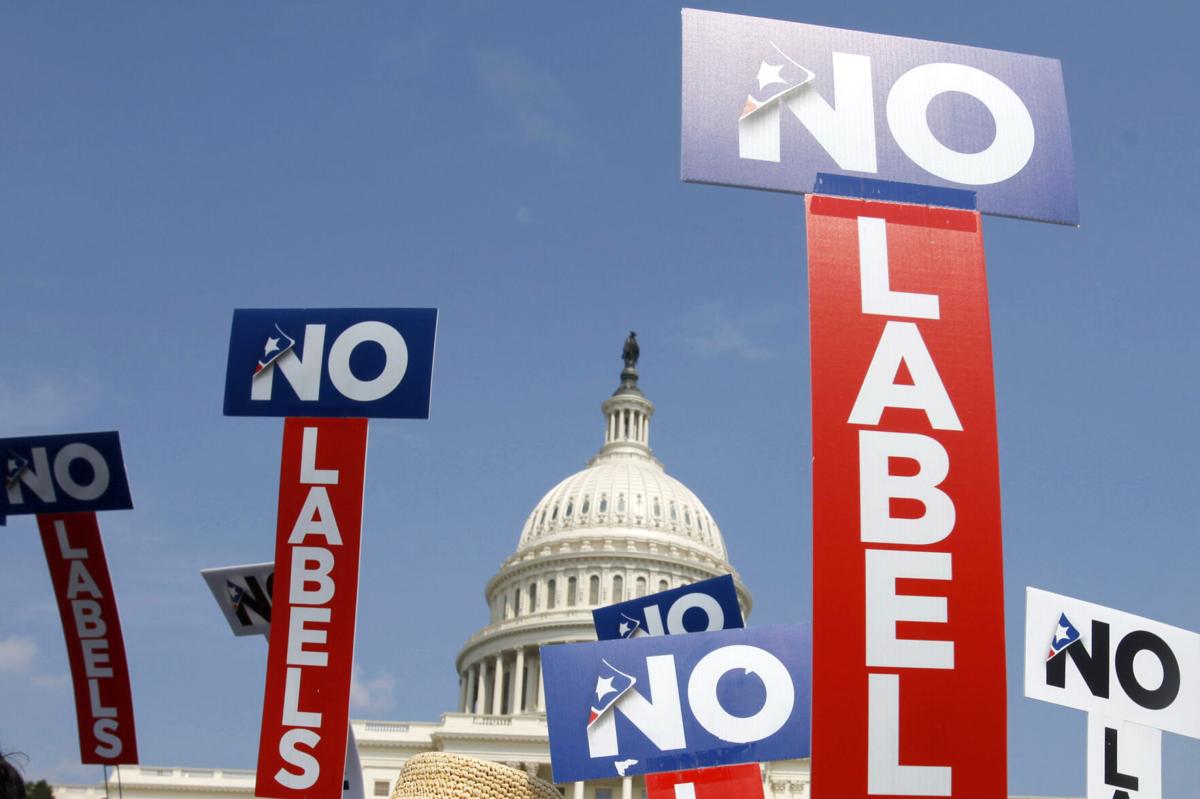PHOENIX — A judge has rebuffed efforts by the Arizona Democratic Party to keep a potential competitor and its candidates off the state’s 2024 ballot.
The Democrats’ complaints of legal flaws in the paperwork filed by the No Labels Party to get ballot standing in Arizona do not stand up under scrutiny, said Maricopa County Superior Court Judge Katherine Cooper.
Neither, she said, do their arguments that the order in which certain signatures were collected violates Arizona law.
The ruling is a setback for the Democrats, who said in filing suit earlier this year they believe having the No Labels Party on the ballot “will make it more difficult to elect Democratic Party candidates.’’
But Cooper gave an attorney for the Democratic Party the opportunity to refile the case in the next month based on some new allegations that were not part of the original lawsuit.
There was no immediate response from the Democratic Party.
Morgan Dick, executive director of the Arizona Democratic Party said the organizations is "evaluating all of our options.''
But Dick said the lawsuit is about more than additional ballot competition. She said the litigation is designed to ensure that Arizona voters know "who is bankrolling this organization as they inject themselves into our elections.''
No Labels, founded in 2009, has the stated goal of combating what it calls the “polarized political climate’’ that has led to the most prominent voices “often found the farthest from the center.’’
Its website says it is creating what it calls an “insurance plan that would allow a Unity ticket to run in 2024 if the two parties select unreasonably divisive presidential nominees,’’ terms it does not define.
A third-party contender could have implications for Democratic President Joe Biden in 2024, particularly in Arizona. He only narrowly edged out then-President Donald Trump by 10,457 votes in 2020.
In filing suit in March, Roy Herrera, attorney for the Democrats, complained that No Labels is organized under a section of the Internal Revenue Code as a “social welfare’’ organization. That limits the amount of money it can spend on political purposes, the lawsuit said.
The IRS status also means the No Labels Party is not required to disclose its contributors, a requirement that exists in state law for other recognized political parties in Arizona, Herrera said.
“To date, No Labels has not publicly disclosed its donors, leaving the sources of much of its funding largely unknown,’’ the lawsuit said. “Nor has No Labels publicly identified the donors behind the initiative to have it certified as a political party in Arizona, despite federal laws requiring political party committees spending more than $5,000 to influence a federal election to identify their donors in filings with the Federal Election Commission.’’
But the lawsuit focused instead on the decision by Democratic Secretary of State Adrian Fontes, having reviewed the paperwork filed by No Labels, to conclude it meets the qualifications for ballot status in Arizona.
One charge leveled by Democrats was that the affidavit containing the legally required number of signatures to qualify for ballot status should say that “the signers thereof be recognized as a new political party.’’ Instead, it said “the assigners of the attached petitions.’’
Cooper essentially called that a difference without a distinction.
“There is no statutory requirement that the affidavit use these exact words,’’ the judge said. She said all that is needed is “substantial compliance.’’
Moreover, “The complaint does not allege that anyone was confused or misled by the phrase,’’ Cooper wrote.
The judge was no more impressed by the Democrats’ arguments that the process to petition for party status was not followed.
That process required No Labels to submit petitions with at least 34,127 valid signatures to the Secretary of State’s Office. It submitted 41,663, according to Fontes.
It also required there be separate affidavits of at least 10 people, attached to the signatures, asking for party recognition. But Herrera complained that No Labels continued to collect signatures after those affidavit sheets were signed.
Cooper’s response, essentially, was that it doesn’t matter.
“The statute does not mandate that the verification be signed only after all signatures in support of the petition have been collected,’’ she wrote. “Moreover, the court has no authority to insert such a requirement.’’
Cooper declined to consider a separate late argument presented by the Democrats which cited a letter sent from No Labels to Fontes saying it will not participate in the state’s primary election and therefore does not need to follow other laws about formation of a committee or filing campaign finance reports. Herrera argued that means the petition to seek party status — the one he could not get tossed — is defective because signers were falsely told No Labels would participate in the primary.
None of that was in the initial complaint, the judge said, meaning she has no authority to consider it. But she did give the Democratic Party until Sept. 11 to move to amend its complaint and have that issue considered.





